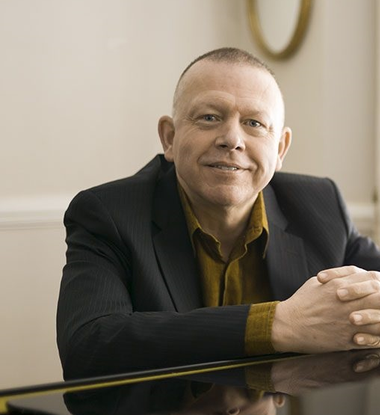International Piano Courses
for Amateur Pianists
Graham Fitch
2025 - 2026
Blonay, Switzerland
2025
20 - 23 May (fully booked)
14 - 17 October (only 1 place left)
2026
21 - 24 May
03 - 06 September
You are an amateur pianist, aiming to improve your piano skills
with an internationally respected expert and exceptional teacher in an inspiring setting.
Welcome toThe International Piano Courses for Amateur Pianists!
As an active participant, you'll receive three half-hour teaching slots to present well-prepared solo pieces. Graham Fitch will give his full attention to any technical or interpretative issues which may be useful to all participants. The masterclasses provide a dynamic learning environment in a friendly, non-competitive atmosphere.
Playing during the evening recitals is highly appreciated by both the performers and the audience.
Duets and duos are very welcome.
As an observer, you'll be most welcome to attend all classes and recitals. Additional one-to-one lessons in Alexander technique with Fanny Gsteiger may be booked in advance.
The Paul Hindemith Music Center is a wonderful and very inspiring place to stay. You'll enjoy the quaint charm of the Chalet Lacroix, the beautiful garden, and the view of Lake Geneva and the Alps.The warm welcome and good food add a familial touch to this serene environment.
Reviews
"I loved the friendly atmosphere created by a caring and encouraging teacher.
The anxiety of performing in public disappeared within a few minutes."
“J’apprécie à chaque fois l’atmosphère très chaleureuse et l’extrême professionnalisme de Graham Fitch, toujours très attentif et soucieux de nous donner tous les atouts pour progresser. »
“I enjoyed hearing the others play, especially at such a high standard. I also enjoyed the location, the food, the wine (and the chocolate!).”
« Les cours sont toujours passionnants et stimulants. J’ai apprécié les astuces techniques mais aussi les métaphores, les indications sur l’œuvre et le compositeur, l’humour et la légèreté alliée au consciencieux, la lucidité de Graham Fitch. »
« J’ai apprécié l’ambiance bienveillante, l’écoute sans jugement et la possibilité de jouer en concert le soir. »
Contact
Véronique Moret
Switzerland
Email: masterclassvm@bluewin.ch
Phone No: +41 79 213 69 77
